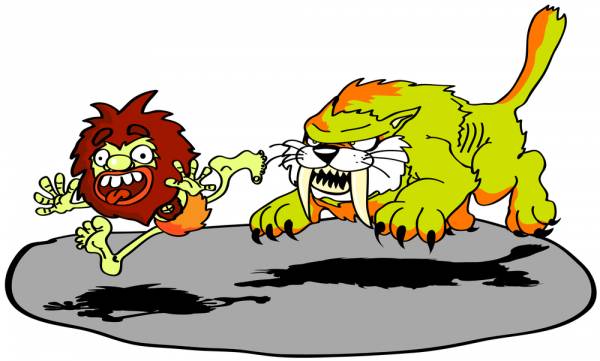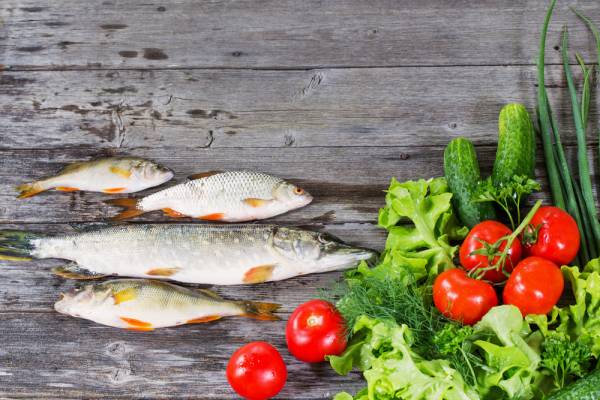How many of you get stressed out and immediately want to reach for that comfort food? When we are under stress we actually need to provide the body with more nutrients so that we can recover. But instead, we reach for the bag of Doritos or that sweet snack that offers us little in the form of nutrients.
Why would we be driven to eat something that is not only lacking nutrients, but could even further our body’s stress response?
How Stress Directly Affects Our Food Intake
Our stress response directly affects our food intake. Anytime we are stressed, our body initiates our fight-or-flight response. When stress occurs there are a group of hormones that are released called glucocorticoids. Glucocorticoids remain in the blood for a significant amount of time after the stressor is removed. One of the many jobs of the glucocorticoids is to replenish energy supplies lost during the fight-or-flight response.
This is even true if the stressor requires little energy expenditure. Our body does not know the difference between thinking of money problems and fighting for our lives. The glucocorticoids help us replenish energy stores by increasing sugar cravings and even increasing our abdominal fat stores.1 This is one mechanism in which stress has been shown to increase abdominal fat and lead to metabolic dysfunction.2
How We Store Energy in Case of Danger
Why would our body want to increase sugar cravings and fat storage after a stressful event? This is because the body is an amazingly adaptive machine. Fighting for our lives and fleeing from danger both require enormous amounts of energy. Our body is making sure that when we encounter any life-threatening event in the future we will have enough energy to survive it.
This ability was advantageous for our ancestors to evade predators, but it is not so advantageous to us today. Today we may have a stressful day of work, which requires us to sit at a desk and expend little energy, and still experience these strong cravings and increased fat storage.
To make matters even worse, sugar may play a major role in down regulating the HPA activity occurring during stress. Foods high in sugar, salt, and fat elicit a strong response from our opioids. Our endorphins are an example of an opioid. Opioid release seems to be a strong defense mechanism to an overactive HPA axis.3 Some researchers believe that reaching for that sweet, salty, or savory snack may actually be a defense mechanism to the high levels of stress that we are under.

How We Know When to Stop Eating
Stress is often seen as one solitary event, but in reality, most of us are under chronic stress and have chronically high levels of glucocorticoids in our blood driving our sugar cravings and even leading to overeating. The glucocorticoids actually reduce our cells’ sensitivity to leptin.4 Leptin is one of our major energy homeostatic hormones. It communicates with our cells how much fat to store and when to stop eating. When we develop resistance to leptin we do not know when to stop eating.
Some foods naturally make us resistant to leptin. Is there a food for you that you can overeat and still feel hungry? For me it is Doritos. I can eat an entire bag and still be looking for more. The fact that our glucocorticoids already desensitize us to leptin, allowing us to overeat as well as increasing fat storage, makes it easy for us to gain weight. This is even true for healthier foods such as fruits and vegetables.
Have you been on a Paleo diet and not lost the weight that your friends did? The reason behind this may be your stress levels. I have had quite a few clients who were doing everything right on paper, but were not losing weight – and in some cases even gained weight on a paleo diet. When we took a deeper look, the majority of them were under high levels of stress and not doing anything to manage their stress.
How to Manage Stress Levels
If you are not doing something proactive to manage your stress, then you are not managing your stress well. In consultations with clients, I have heard far too often, “I am not a stressed person.” Yet, their tests show signs of chronic stress.
Stress management techniques are endless and can vary per individual. Options such as mediation, deep breathing, yoga, guided imagery, and behavioral distraction are all options. This can be a difficult task to undertake right away, but start small. You can begin with just one minute a day of guided meditation and keep increasing it daily until you reach thirty minutes of mediation per day.
On top of active stress management, we need to make sure that our lifestyles are not increasing our stress levels. Make sure you are sleeping seven to nine hours in a completely blacked out room. Not getting quality sleep can increase cravings and caloric intake even in healthy individuals.5

We also need to be eating a nourishing diet that is high in nutrients. This does not include processed foods. Eating more nutrient-dense meats, fish, eggs, fruits, and vegetables can give our bodies what they need to fight the chronic stress we are under.
Taking a step back and looking at all the areas of your life and determining what areas need work can go a long way to achieving optimal health. Address those weak spots by focusing hard on them for thirty days and see the results that come about. I am willing to bet you will not be disappointed.
What do you crave when you’re stressed? What sort of stress management tools do you use in your life? Post to the comments below.
References:
1. Dallman, M., et.al., “Chronic stress and obesity: A new view of ‘comfort food’” PNAS (2003). Retrieved on May 23, 2014.
2. Bjorntop, P. “Visceral fat accumulation: the missing link between psychosocial factors and cardiovascular disease?“ Journal of Internal Medicine (2009). Retrieved on May 23, 2014.
3. Adam TC. and Epel. ES., “Stress, eating and the reward system.” Physiology and Behavior (2007). Retrieved on May 23, 2014.
4. Solano, J and Jacobson, L. “Glucocorticoids reverse leptin effects on food intake and body fat in mice without increasing NPY mRNA.” Journal of Physiology (1999). Retrieved on May 23, 2014.
5. Spiegel, K., et.al., “Brief Communication: Sleep Curtailment in Healthy Young Men Is Associated with Decreased Leptin Levels, Elevated Ghrelin Levels, and Increased Hunger and Appetite.” Annals of Internal Medicine (2004). Retrieved on May 23, 2014.
Photos courtesy of Shutterstock.






